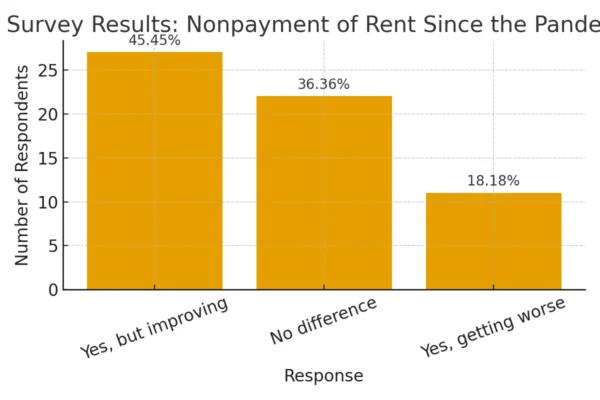Avoid Discrimination in Tenant Safety Rules
Rent it Right
by Janet Portman, Inman News
 Q: I manage an apartment complex, where we have many families with children. We have large parking lots where kids often ride their bikes. This is an obvious safety hazard, so I’ve posted a sign saying “Children may not ride bikes in the parking lot.” The owner told me to take it down, that it discriminates against kids. Can he be right? –Jackie W.
Q: I manage an apartment complex, where we have many families with children. We have large parking lots where kids often ride their bikes. This is an obvious safety hazard, so I’ve posted a sign saying “Children may not ride bikes in the parking lot.” The owner told me to take it down, that it discriminates against kids. Can he be right? –Jackie W.
A: Your owner is right, to a point. But he hasn’t taken the next step of showing you how to handle your legitimate safety concerns without creating legal problems, which will be easy to do. Here’s the deal.
Landlords may not make rules that are directed at federally designated “protected classes” of people, such as members of a certain religion, race, national origin, familial status, disability and sex. Policies that target children are considered instances of discrimination against families.
State laws frequently add to this list, protecting people based on their marital status, occupation, sexual orientation, and more.
Importantly, the landlord’s intent is completely irrelevant. No matter how much good sense it makes to keep kids out of the parking lot, and even though your intent is to protect kids, rather than harm them or deprive them, the fact that your rule singles them out puts you on legally shaky ground.
Happily, solving the problem is as simple as changing your sign. The sign should say, “No bike riding in the parking lot.” That way, it’s directed at everybody, not just children. Adults ride bikes, too, and you certainly don’t want an adult zipping through the parking lot any more than you want a pint-sized rider doing the same.
But wait, you say: The reality is that children are by far the biggest group of parking-lot riders, so doesn’t the rewritten rule still have the effect of discriminating against them?
The law has an answer to this. A rule that has the effect of discriminating against a protected group — even if it’s not written that way — is not necessarily illegal. If the rule is necessary to accomplish a reasonable goal, it will survive a legal challenge.
In this case, you’d have an easy time convincing a fair housing inspector that your goal (avoiding serious accidents) is reasonable, and that prohibiting bikes in the parking lot, though it affects kids more than adults, is necessary to accomplish this goal.
Let’s consider another situation in which you might find yourself wondering about the fair housing implications of your policies. Suppose you have a pool rule specifying that children under the age of 14 must be supervised at all times.
You should rewrite it to specify “users” under the age of 14, but because the rule affects only children, you’ll still need to make sure that your goal is reasonable and your rule is necessary to achieve it.
As for the goal, that’s not too hard — everyone wants to avoid pool accidents among children. But what about the age you’ve chosen (the specifics of the rule)? If challenged, you’ll need to show that it’s reasonable to assume that kids under the age of 14 need the protection of your rule.
The way to do that is to look for objective evidence that will support your rule — that children all the way up to 14 years old need supervision. Talk to swimming instructors, lifeguards at your local city pool, or contact the Drowning Prevention Foundation. If these professionals can back you up, you should be able to defend your policy.
Janet Portman is an attorney and managing editor at Nolo. She specializes in landlord/tenant law and is co-author of “Every Landlord’s Legal Guide” and “Every Tenant’s Legal Guide.” She can be reached at [email protected].
Copyright 2010 Janet Portman
See Janet Portmans feature, Rules for Showing Leased Properties.
American Apartment Owners Association offers discounts on products and services for landlords related to your commercial housing investment, including real estate forms, tenant debt collection, tenant background checks, insurance and financing. Find out more at www.joinaaoa.org.













 Accessibility
Accessibility